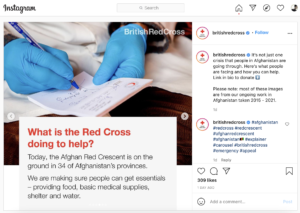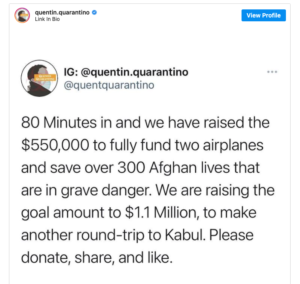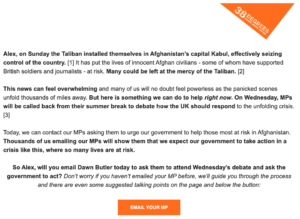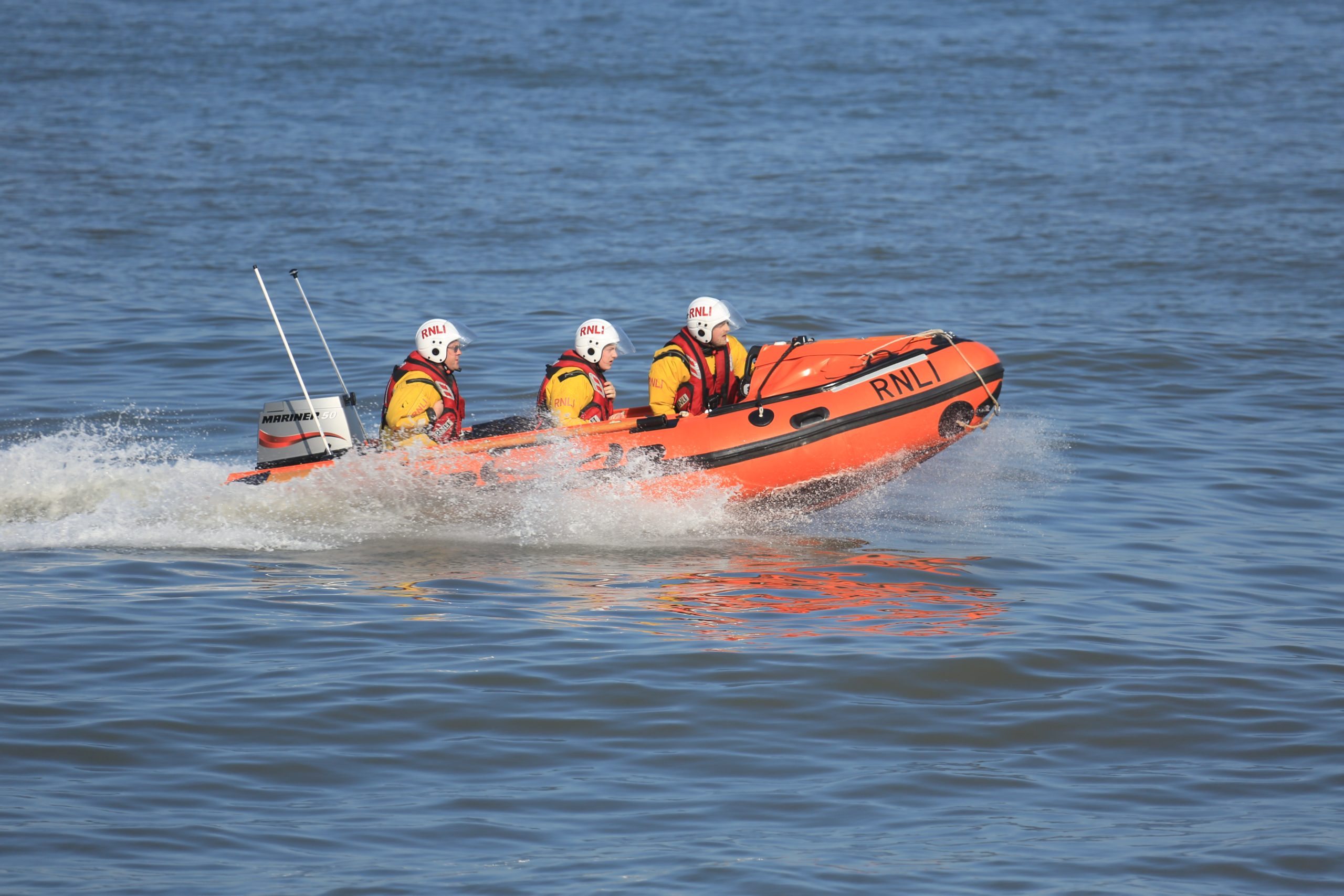For all of us watching around the world, the events of the last week in Afghanistan have been deeply shocking and saddening. The images of people desperately trying to escape Taliban oppression on US military planes will stay with me forever.
Over the last few days, it has been easy to feel that we’re helpless to shape the course of events. But history has shown that the hours and days following an international event like the fall of Kabul are a time of huge political jeopardy. The response of our governments this week will shape international policy and events for years to come.
Right now, politicians and the public alike are forming their opinions. Governments are trying to gauge the collective appetite for taking in Afghan refugees, balancing public demand for a compassionate humanitarian response against years of xenophobia and anti-refugee sentiment. MPs are making and adjusting that calculation in real-time, and we only need to look across the channel to see what happens if the political calculus tips towards nativism.
But if campaigning organisations move quickly to mobilise public action, we can do more than respond to events as they happen – we can help set the direction for how our country responds to this crisis.
NGOs such as our partners at British Red Cross are practised and adept at rapidly launching both lifesaving aid programmes and the fundraising campaigns to power them overnight. And meme artist Quentin Quarantino’s 24 hour, $5 million crowdfunder to evacuate Afghans on private planes is a brilliant example of how rapid response digital mobilisation can be used to provide services where government processes are failing or too slow.


However, in moments where the political response hangs in the balance as it does now, rapid response for fundraising and service delivery alone is not enough.
Perceptions of public opinion are one of the key drivers of which policy the government ultimately pursues. It is critical that NGOs have the ability to mobilise their supporters within hours – not days or weeks – to make their voices heard. If that response comes too late, slowed by business-as-usual deliberation and lengthy approval processes, the government’s decision will have been made – and our ability to shape it to the values of our organisations and supporters will be missed, with potentially devastating consequences for thousands of people.
We’ve been inspired to see nimble organisations putting this principle into practice over the past few days. Groups like Choose Love, Refugee Action and 38 Degrees launched campaigns within hours of the fall of Kabul, demanding the government commit to evacuating those most at risk and welcoming Afghan refugees to the UK. By moving quickly to mobilise tens of thousands of supporters ahead of Wednesday’s urgent debate in parliament, they made sure public demand for compassionate action was at the forefront of MPs’ minds during a moment of crucial influence.

What are the lessons from this for the third sector as a whole?
First, supporter mobilisation is a critical part of the toolbox for any organisation seeking to influence political decision making. There are some moments where it’s essential to demonstrate widespread public support for your position if you’re going to shape events.
Second, in a crisis, we need the ability to mobilise supporters for political advocacy as rapidly as we’re able to set up aid programmes and emergency fundraisers. Charities have invested in the ability to rapidly deploy resources and expedite decision making so that we can spin up fundraising and aid programmes within hours of a crisis. This tragic moment reminds us that, if we develop this same capability for rapid response advocacy, charities and their supporters have a collective power to shape both the news agenda and government policy.


